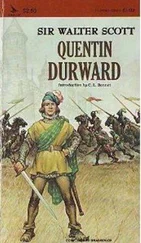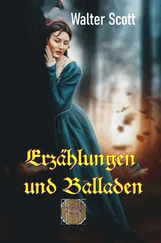Walter Scott - Letters on Demonology and Witchcraft
Здесь есть возможность читать онлайн «Walter Scott - Letters on Demonology and Witchcraft» весь текст электронной книги совершенно бесплатно (целиком полную версию без сокращений). В некоторых случаях можно слушать аудио, скачать через торрент в формате fb2 и присутствует краткое содержание. Жанр: История, на английском языке. Описание произведения, (предисловие) а так же отзывы посетителей доступны на портале библиотеки ЛибКат.
- Название:Letters on Demonology and Witchcraft
- Автор:
- Жанр:
- Год:неизвестен
- ISBN:нет данных
- Рейтинг книги:4 / 5. Голосов: 1
-
Избранное:Добавить в избранное
- Отзывы:
-
Ваша оценка:
- 80
- 1
- 2
- 3
- 4
- 5
Letters on Demonology and Witchcraft: краткое содержание, описание и аннотация
Предлагаем к чтению аннотацию, описание, краткое содержание или предисловие (зависит от того, что написал сам автор книги «Letters on Demonology and Witchcraft»). Если вы не нашли необходимую информацию о книге — напишите в комментариях, мы постараемся отыскать её.
Letters on Demonology and Witchcraft — читать онлайн бесплатно полную книгу (весь текст) целиком
Ниже представлен текст книги, разбитый по страницам. Система сохранения места последней прочитанной страницы, позволяет с удобством читать онлайн бесплатно книгу «Letters on Demonology and Witchcraft», без необходимости каждый раз заново искать на чём Вы остановились. Поставьте закладку, и сможете в любой момент перейти на страницу, на которой закончили чтение.
Интервал:
Закладка:
We must now turn our eyes to Britain, in which our knowledge as to such events is necessarily more extensive, and where it is in a high degree more interesting to our present purpose.
LETTER VIII.
The Effects of the Witch Superstition are to be traced in the Laws of a Kingdom—Usually punished in England as a Crime connected with Politics—Attempt at Murder for Witchcraft not in itself Capital—Trials of Persons of Rank for Witchcraft, connected with State Crimes—Statutes of Henry VIII—How Witchcraft was regarded by the three Leading Sects of Religion in the Sixteenth Century; first, by the Catholics; second, by the Calvinists; third, by the Church of England and Lutherans—Impostures unwarily countenanced by individual Catholic Priests, and also by some Puritanic Clergymen—Statute of 1562, and some cases upon it—Case of Dugdale—Case of the Witches of Warbois, and the execution of the Family of Samuel—That of Jane Wenham, in which some Church of England Clergymen insisted on the Prosecution—Hutchison's Rebuke to them—James the First's Opinion of Witchcraft—His celebrated Statute, 1 Jac. I.—Canon passed by the Convocation against Possession—Case of Mr. Fairfax's Children—Lancashire Witches in 1613—Another Discovery in 1634—Webster's Account of the manner in which the Imposture was managed—Superiority of the Calvinists is followed by a severe Prosecution of Witches—Executions in Suffolk, &c. to a dreadful extent—Hopkins, the pretended Witchfinder, the cause of these Cruelties—His Brutal Practices—His Letter—Execution of Mr. Lowis—Hopkins Punished—Restoration of Charles—Trial of Coxe—Of Dunny and Callendar before Lord Hales—Royal Society and Progress of Knowledge—Somersetshire Witches—Opinions of the Populace—A Woman Swum for Witchcraft at Oakly—Murder at Tring—Act against Witchcraft abolished, and the belief in the Crime becomes forgotten—Witch Trials in New England—Dame Glover's Trial—Affliction of the Parvises, and frightful Increase of the Prosecutions—Suddenly put a stop to—The Penitence of those concerned in them.
Our account of Demonology in England must naturally, as in every other country, depend chiefly on the instances which history contains of the laws and prosecutions against witchcraft. Other superstitions arose and decayed, were dreaded or despised, without greater embarrassment, in the provinces in which they have a temporary currency, than that cowards and children go out more seldom at night, while the reports of ghosts and fairies are peculiarly current. But when the alarm of witchcraft arises, Superstition dips her hand in the blood of the persons accused, and records in the annals of jurisprudence their trials and the causes alleged in vindication of their execution. Respecting other fantastic allegations, the proof is necessarily transient and doubtful, depending upon the inaccurate testimony of vague report and of doting tradition. But in cases of witchcraft we have before us the recorded evidence upon which judge and jury acted, and can form an opinion with some degree of certainty of the grounds, real or fanciful, on which they acquitted or condemned. It is, therefore, in tracing, this part of Demonology, with its accompanying circumstances, that we have the best chance of obtaining an accurate view of our subject.
The existence of witchcraft was, no doubt, received and credited in England, as in the countries on the Continent, and originally punished accordingly. But after the fourteenth century the practices which fell under such a description were thought unworthy of any peculiar animadversion, unless they were connected with something which would have been of itself a capital crime, by whatever means it had been either essayed or accomplished. Thus the supposed paction between a witch and the demon was perhaps deemed in itself to have terrors enough to prevent its becoming an ordinary crime, and was not, therefore, visited with any statutory penalty. But to attempt or execute bodily harm to others through means of evil spirits, or, in a word, by the black art, was actionable at common law as much as if the party accused had done the same harm with an arrow or pistol-shot. The destruction or abstraction of goods by the like instruments, supposing the charge proved, would, in like manner, be punishable. A fortiori , the consulting soothsayers, familiar spirits, or the like, and the obtaining and circulating pretended prophecies to the unsettlement of the State and the endangering of the King's title, is yet a higher degree of guilt. And it may be remarked that the inquiry into the date of the King's life bears a close affinity with the desiring or compassing the death of the Sovereign, which is the essence of high treason. Upon such charges repeated trials took place in the courts of the English, and condemnations were pronounced, with sufficient justice, no doubt, where the connexion between the resort to sorcerers and the design to perpetrate a felony could be clearly proved. We would not, indeed, be disposed to go the length of so high an authority as Selden, who pronounces (in his "Table-Talk") that if a man heartily believed that he could take the life of another by waving his hat three times and crying Buzz! and should, under this fixed opinion, wave his hat and cry Buzz! accordingly, he ought to be executed as a murderer. But a false prophecy of the King's death is not to be dealt with exactly on the usual principle; because, however idle in itself, the promulgation of such a prediction has, in times such as we are speaking of, a strong tendency to work its completion.
Many persons, and some of great celebrity, suffered for the charge of trafficking with witches, to the prejudice of those in authority. We have already mentioned the instance of the Duchess of Gloucester, in Henry the Sixth's reign, and that of the Queen Dowager's kinsmen, in the Protectorate of Richard, afterwards the Third. In 1521, the Duke of Buckingham was beheaded, owing much to his having listened to the predictions of one Friar Hopkins. In the same reign, the Maid of Kent, who had been esteemed a prophetess, was put to death as a cheat. She suffered with seven persons who had managed her fits for the support of the Catholic religion, and confessed her fraud upon the scaffold. About seven years after this, Lord Hungerford was beheaded for consulting certain soothsayers concerning the length of Henry the Eighth's life. But these cases rather relate to the purpose for which the sorcery was employed, than to the fact of using it.
Two remarkable statutes were passed in the year 1541; one against false prophecies, the other against the act of conjuration, witchcraft, and sorcery, and at the same time against breaking and destroying crosses. The former enactment was certainly made to ease the suspicious and wayward fears of the tetchy King Henry. The prohibition against witchcraft might be also dictated by the king's jealous doubts of hazard to the succession. The enactment against breaking crosses was obviously designed to check the ravages of the Reformers, who in England as well as elsewhere desired to sweep away Popery with the besom of destruction. This latter statute was abrogated in the first year of Edward VI., perhaps as placing an undue restraint on the zeal of good Protestants against idolatry.
At length, in 1562, a formal statute against sorcery, as penal in itself, was actually passed; but as the penalty was limited to the pillory for the first transgression, the legislature probably regarded those who might be brought to trial as impostors rather than wizards. There are instances of individuals tried and convicted as impostors and cheats, and who acknowledged themselves such before the court and people; but in their articles of visitation the prelates directed enquiry to be made after those who should use enchantments, witchcraft, sorcery, or any like craft, invented by the devil .
Читать дальшеИнтервал:
Закладка:
Похожие книги на «Letters on Demonology and Witchcraft»
Представляем Вашему вниманию похожие книги на «Letters on Demonology and Witchcraft» списком для выбора. Мы отобрали схожую по названию и смыслу литературу в надежде предоставить читателям больше вариантов отыскать новые, интересные, ещё непрочитанные произведения.
Обсуждение, отзывы о книге «Letters on Demonology and Witchcraft» и просто собственные мнения читателей. Оставьте ваши комментарии, напишите, что Вы думаете о произведении, его смысле или главных героях. Укажите что конкретно понравилось, а что нет, и почему Вы так считаете.









